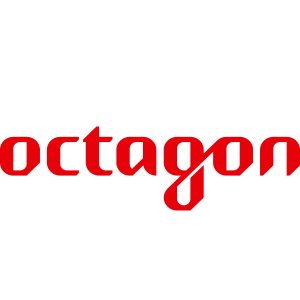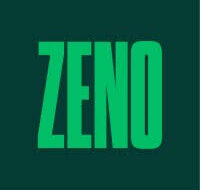Agency Spotlight: Octagon
Published on November 5, 2019, at 8:30 p.m.
by Louise Margeson.
In the business of college and professional sports, sponsorship is one of the most effective ways to drive fan engagement for brands within the industry and beyond. Sponsorship is when a business provides funds or services to a club in return for some form of rights or associations with the club that may be used to help the business commercially. Utilizing sponsorships results in mutually beneficial relationships, as consumers are able to recognize the shared passion between themselves as fans, and the sponsoring brand can align its message with a target audience.

Octagon can attest to the effectiveness of sponsorship as the world’s largest sports and entertainment agency with over 30 years in sports marketing, sponsorship and athlete/talent representation. Boasting talent such as Stephen Curry, Trae Young, Simone Biles, Nancy Lieberman, and Heidi and Spencer Pratt, the agency has solidified its position as one of the best in the industry. Octagon even received Sports Business Journal’s award for Best in Corporate Consulting in 2018, among others. Some of the agency’s largest clients are Mastercard, BMW and Bank of America.
“We’re ultimately looking to find the right partnerships for our clients to reach consumers in a meaningful way by identifying where they should invest their sponsorship dollars, how they should go about doing so and measuring the return,” explained Kevin Wittner, Octagon’s vice president of analytics. Wittner primarily works with the Delta Air Lines, Taco Bell and MGM Resorts accounts.
In order to generate strategic campaigns for Octagon’s clients, the agency starts by defining their goals and objectives. For example, who is the target consumer? From there, a program’s success comes from determining how to effectively align the client’s message with the target consumers in a way that will resonate in the long term. Storytelling is a large component of this strategy in terms of reaching consumers.

“It’s not just slapping a logo on an event or a stadium, but finding ways to add to the fan experience and ultimately creating a relationship with that consumer. It’s saying we care about the same things that you do and getting the permission to talk to that consumer when they’re already engaged as a fan,” said Wittner.
One of the ways that Octagon adds to the fan experience on behalf of its clients is through experiential marketing. Bo Heiner, senior vice president of marketing and events, noted that “a sponsor at a college football game engaging a college football fan can have an intrinsic connection to their shared passion for college football. Experiential marketing also provides tangible measurement opportunities as brands can track the event engagement and create opportunities to extend the interaction post-event.”

Heiner, who was named to Sports Business Journal’s 2019 College Sports: Power Players list, leads many of Octagon’s largest clients out of Atlanta, including Georgia Power and The Home Depot.
The Home Depot exemplifies the agency’s effective use of experiential marketing through its sponsorship of ESPN’s College GameDay Built by The Home Depot. The brand’s target consumers are typically homeowners and individuals prone to taking on DIY projects; thus College GameDay’s Saturday morning broadcasting allows for a prime activation opportunity. These consumers are already engaged as fans guaranteeing a point of entry for The Home Depot. The partnership has received renowned praise, including the Cynopsis Sports Media Award: Best Use of Integrated Sponsorship for Broadcast.
Data analysis is an important resource to consider when playing matchmaker between a brand and a league/team, which is highlighted through Octagon’s use of analytics.
“Data and analytics are necessary to demonstrate both that you’re making the right investment in terms of reaching your target customer in the most effective way, but also demonstrating the results,” explained Wittner. “The way we want to use data is to optimize decision-making so that we’re putting together programs that are going to resonate with fans, and then the next time, whether that’s week two, month two or year two of a partnership, we’re going to be a better sponsor and find ways to connect with those fans.”
Octagon’s use of experiential marketing and data analytics when establishing sponsorships allows the agency to maintain its position as one of the industry’s major players.




